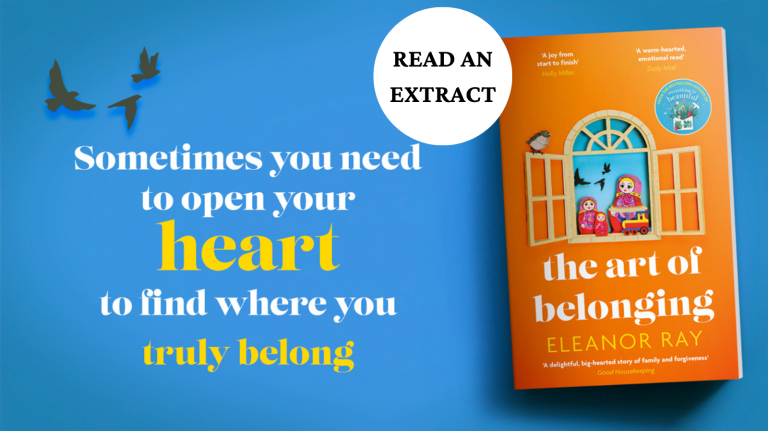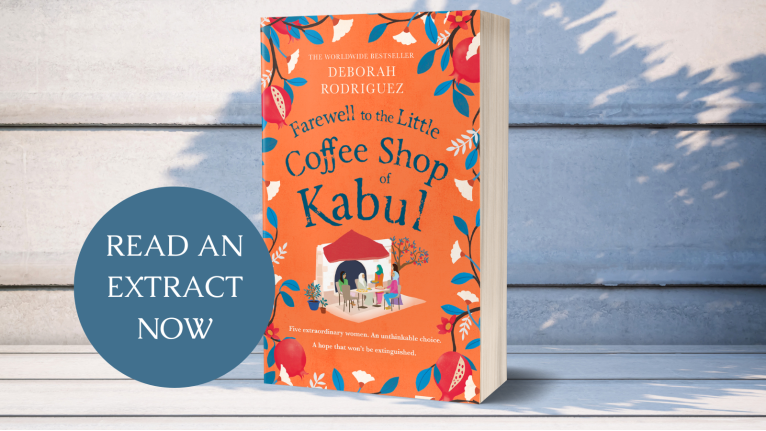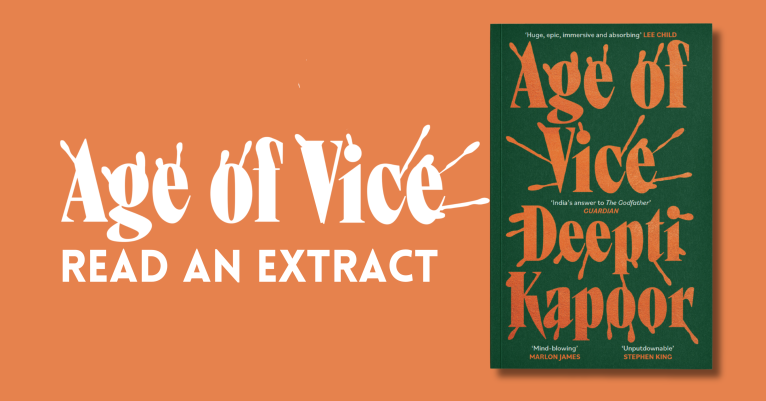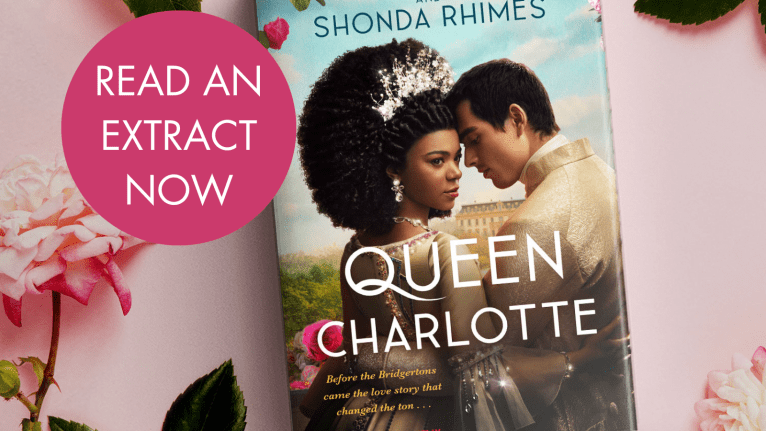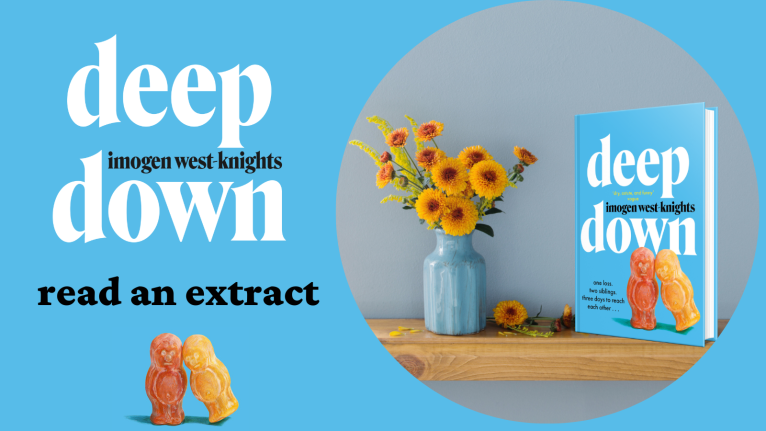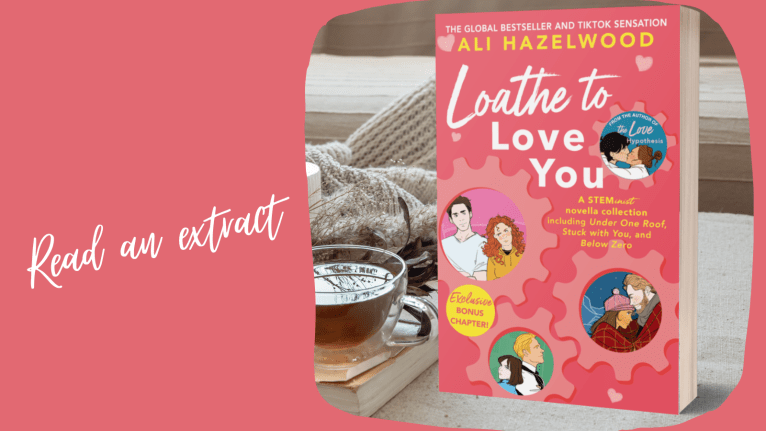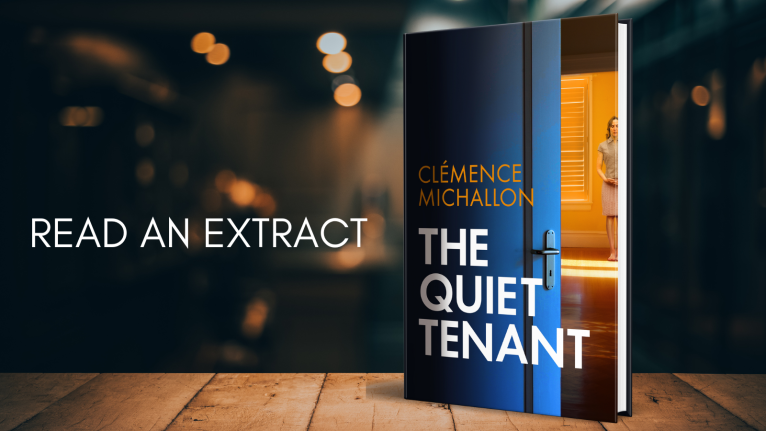Read an extract from Adventure Revolution by Belinda Kirk
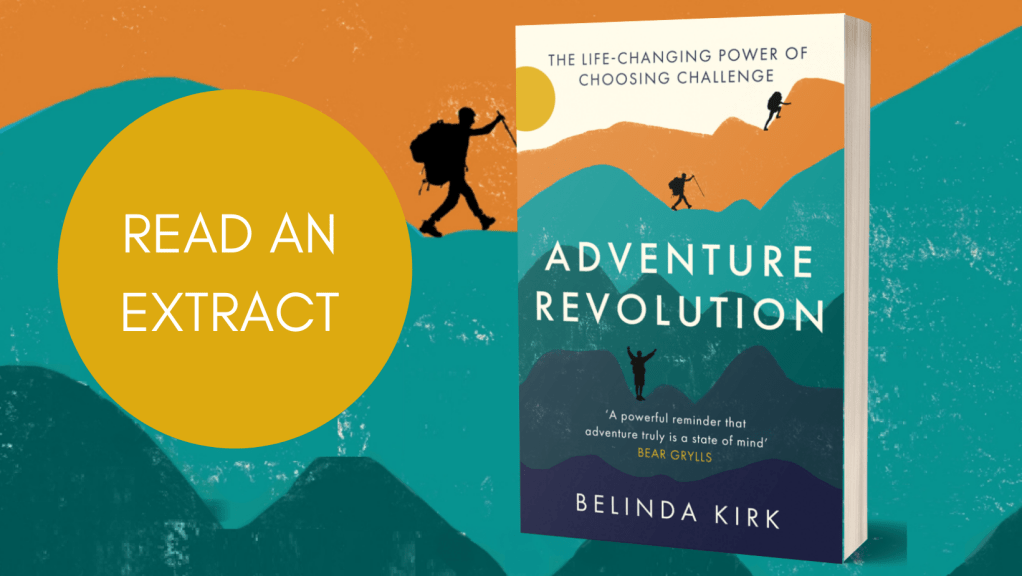
Introduction
Nineteen years ago, everything changed. It was the day I realised that adventure is not a frivolous luxury but a necessity of the human spirit.
I was standing in the rain outside the iconic Royal Geographical Society (RGS) in London. During the previous summer of 2002, I had led a group of young people through the Amazon, and we had reconvened to present our findings. I was just twenty-six years old – the youngest Chief Leader the British Exploring Society (BES) had ever let lead this kind of expedition. I had nearly a decade of experience on my own, but I still had a lot to learn. Although I’d experienced my own personal transformation as a result of adventuring, I had no appreciation of the kind of impact adventurous activity could have on other people. As I waited, a woman approached me.
‘What did you do to my daughter?’ she asked.
I panicked for a moment, a whole host of scenarios running through my head. There was the girl who’d been bitten by a bat. Could it have been her? Maybe she was part of the team that missed their resupply and had to subsist on nothing but tinned sardines for two days? Or maybe she was one of the unlucky few who experienced the joy of jungle parasites?
Before I could say anything, the woman gave me a giant bear hug, like we were long lost friends. ‘I don’t recognise her,’ she said. ‘She’s a different girl. She’s so much happier. I can’t thank you enough.’ She told me her daughter was Alice, and then it clicked. Alice had been one of my toughest challenges of the trip. A seventeen-year-old with low self-confidence and a history of self-harm, Alice struggled – mentally, academically and socially. While most of the team formed fast friendships, when we first set out Alice was distant. Friends didn’t come easy, it seemed, and she wasn’t connecting well with the rest of the group. I tried a few different tactics to bring her into the fold, but nothing seemed to work. So, I gave her a job.
I put Alice in charge of the group kit for her team of twelve. Basically, she was responsible for ensuring the team was equipped with the right gear. It was an important job – and one that would require her to talk to every member of the team. At first, I helped her. I didn’t want her to panic or become more fearful. But little by little, Alice owned the role. I could see she was smart and capable – and eventually, so could she.
A few weeks into the expedition, I visited Alice’s team. They had been moving around the jungle but had set up camp for a few days to assemble bat netting and carry out biological surveys. When I found them, I was pleased to discover that Alice had volunteered to be the camp manager, running the day-to-day logistics of their basecamp. The timid girl I had met at the airport just a few weeks earlier was now confidently striding about her jungle camp, arranging water-purification checks, making cooking schedules and assigning work rotations. I almost didn’t recognise her.
From the outside, it was impossible to miss the transformation. The girl who had joined the expedition and the young woman who’d returned to her family in Britain were strikingly different. But I’d never considered how deep a transformation it could prove to be – and how long it might last once she was out of the jungle. And yet, six months later, here was her mother, hugging me in the rain, telling me that Alice now helped out at home, had brought her grades up and, perhaps most importantly, even had a few new friends.
For all my memories of that trip – the boat that sank, the Toyota I rolled on a jungle track, and all the wonderful young people – I’ll never forget this one interaction outside the RGS. It seems as clear today as it was the day after it happened. I believe that it’s so seared into my memory because it was the moment I came to fully believe in the power of adventure to change people’s lives for the better. Before being embraced by Alice’s mum, adventure was simply a fix for me – my way of escaping myself and feeling most alive, hooked like an addict, always searching for the next challenge. Yet, since that moment, my focus has shifted from the next expansive jungle, big mountain or open ocean to the many ways that I can make a positive impact on the world, with adventure as the way.
Adventure changed my life. And for the last twenty-six years of taking others on adventurous activities, I have seen it change people of all ages and abilities, and from all walks of life – seen it turn the timid into the confident, the addicted into the recovering and the lost into the intentionally wandering. As a force for change, adventure can be powerful like few others. But the day I met Alice’s mum was the day I asked myself the question I can’t stop asking: how can we harness the transformational power of adventure, both for ourselves and for others? And this is what Adventure Revolution is all about. We’ll journey across jungles, up volcanoes and down rivers with people who had a lot to lose but even more to gain from adventure. We’ll also camp under the stars close to home and learn to surf or climb for the first time – adventure does not have to be in hostile environments or involve breaking records to count.
We’ll meet Amina, a homeless, angry teenager who became an inspiring youth leader. And Freyja, a successful yet unsatisfied manager who, through climbing, became a proactive, brave woman in charge of her life and career. And Kelvyn, an entrepreneur who was able to use adventure to help him cope with tragic events in his life and now helps others to boost their own wellbeing through adventure. These are
normal people, not adrenaline junkies or superhumans.
Since that moment outside the RGS, I’ve noticed the powerful transformation possible when we answer our
inbuilt call to adventure. And I’ve come to understand the damage caused when we ignore it. We have developed and become boxed in by an always-on synthetic environment that prioritises efficiency and convenience over nature and natural challenge. Our chronic disconnection from outdoor adventure means we’re underestimating its benefits for our wellbeing. We think of adventure as a luxury, not a necessity,
and by doing so, have lost the understanding of how good it makes us feel and how transformative its power can be. Ignoring the call to adventure has become the status quo.
Thanks to advances in technology and improvements in housing standards we go outdoors less than any generation before us. We are safer and more comfortable than ever before. Standards of living are better for the vast majority of us than they have ever been. And yet, for the first time since records began, life expectancy has fallen in several developed countries in recent years and mental-health problems have reached an all-time high. In an age of such wealth and comfort, this seems paradoxical. Living sedentary, unadventurous lives affects our physical and mental health, making us unfit, more
anxious and less resilient.
The biggest change has been in the last thirty years. My friend Richie (who you will meet later in the book swimming the rapids of the mighty Zambezi River) noted that when he was at school, he’d play in the woodland behind the playground every break time, free and unsupervised. His son now goes to the same school and the woodland is still there. However, today it is fenced off, surrounded by warning signs, and no one is allowed to enter unless it’s during weekly structured forest-school lessons. This is the
new normal.
In short, modern life, for too many of us, has become too restrictive. We’ve become victims of convenience – bored, risk averse and disconnected from the natural world. Beyond making us unwell, the absence of adventure is keeping us from being the best versions of ourselves that we can be. But there is another way. Taking my two decades of experience as an adventurer and the latest research in brain and behaviour, I’ll show you the many positive effects adventure can have for individuals, groups and society, and how a more
adventurous life enables us:
• To heal, recover and rise after adversity
• To bring up well-rounded and resilient children
• To face fear
• To stretch ourselves and grow
• To strengthen relationships
• To find joy
• To find meaning
• To boost wellbeing and life satisfaction
• To optimise how we function on a day-to-day basis
(how we think, feel and behave)
• To become our best selves
In the first three chapters, we’ll explore the impact adventure has on people and what poets and philosophers have known for eons: that adventure matters. We will also address what happens when we lack adventure in our lives and what we can do about it. Then, in chapter four and beyond, we’ll delve more deeply into the specific ways adventure can help us become our best selves, and we’ll uncover the surprisingly simple ways that you can live more adventurously without the need to quit your job and cycle round the world or throw yourself off a bungee jump.
I truly believe that adventure is a necessity for our wellbeing, physically and mentally. It teaches us to confront challenges, to take risks, and to appreciate our wild places and each other – all while giving us moments of real joy. What’s more, anyone can do it.
And it’s fun. There are so many things we’re told we should be doing to make ourselves happier and healthier: going to the gym, cutting out sugar, reducing the salt we eat, going to therapy, being mindful. It can be exhausting just thinking about everything we ought to be doing. But the beauty of adventure is that it’s natural and fun (even when it’s not fun; more about that in chapter nine). Adventure is something to
look forward to, a pleasure to look back on and mostly enjoyable at the time too. As such, adventure is a welcome addition to our list of ‘must dos’ as we strive to be healthier and happier.
At the end of the day, adventure might just be the most natural way to make a change and tackle the many health issues that we face. I hope Adventure Revolution will help spark a change for you, the reader, and maybe even in society more widely. Let it tempt you to get up, go outside and try something new.


